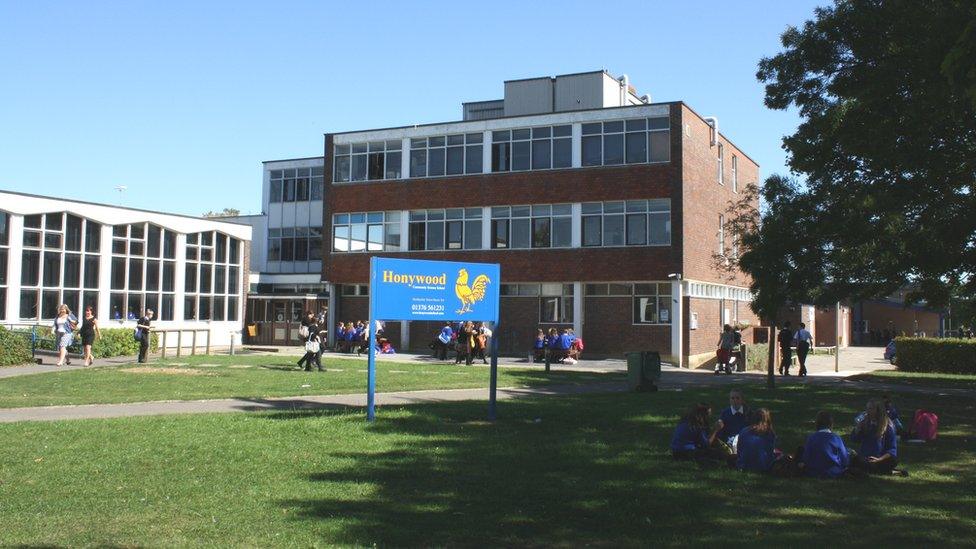Concrete crisis: Gillian Keegan visits Essex school
- Published
Education secretary Gillian Keegan said unsafe concrete in schools would be sorted
Education secretary Gillian Keegan has visited a school in Essex which has been affected by unsafe concrete.
Ms Keegan has been to the Anglo European School in Ingatestone, which discovered potentially weak concrete known as Raac earlier this year.
Essex is the county with the highest number of schools in the country to have used the material.
About 25 schools are closed, partly closed or making alternative arrangements.
The government has named 147 schools which need to partially or fully shut buildings amid safety concerns over reinforced autoclaved aerated concrete (Raac), a lightweight material that was used in construction between the 1950s and the mid 1990s.

Education secretary, Gillian Keegan, visited the Anglo European school in Ingateston, which discovered Raac earlier this year
Headteacher Jody Gee told the BBC Ms Keegan visited the Anglo European school to see the mitigation measures it has in place, with all students being taught on site.
Over six months, the school erected temporary buildings and fully propped up the roof in the sixth-form building, which is now safe for students to return to.
The temporary classrooms cost £967,000 which was fully funded by the Department for Education.
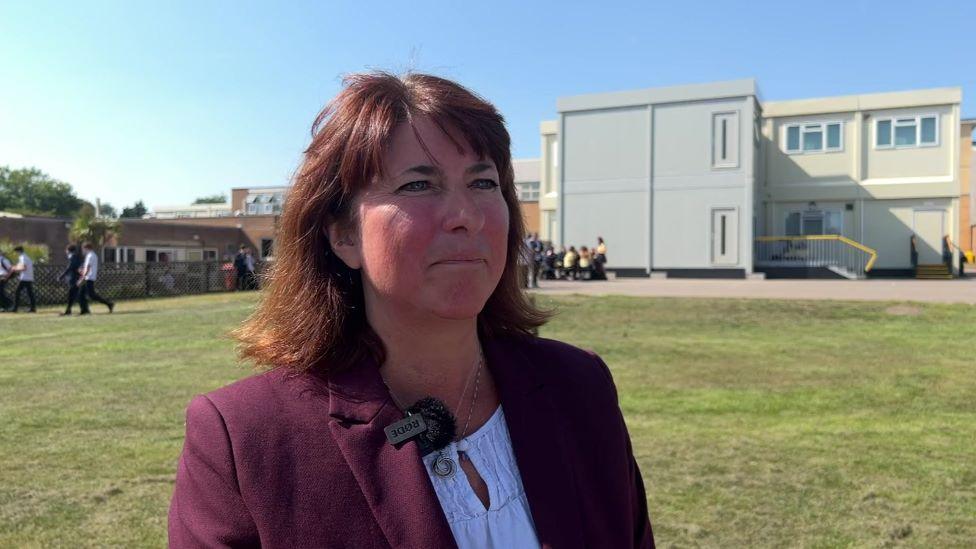
Jody Gee said she hoped the education secretary was "heartened" by the solutions the school put in place
Ms Gee said she spoke with the secretary of state about schools not being able to take on that level of financial burden alone.
"The cost of concrete falling on children's head and not providing safe and secure educational provision is a much higher cost," she said.
"I hope she was heartened by what she saw because what she can see here is a solution that works. All our children are back in classrooms that are fully refurbished, they have safe and secure roofs."
The education secretary also visited County Hall to meet local MPs, councillors and council officers.
Conservative MP for Chelmsford Vicky Ford, who attended the meeting, said of the 53 schools identified as having Raac 37 are fully open to pupils because mitigation measures are in place.
Six delayed the start of term by a week and 10 schools have some online learning while mitigation is put in place "as quickly as possible".
She said: "Obviously Essex seems to have had a more significant problem than other parts of the country because of the way Essex grew during that post-war period, and a lot of new schools were built or changes were made to school buildings".

Conservative MP for Chelmsford Vicky Ford, Education Secretary Gillian Keegan and Conservative MP for Witham and former Home Secretary Priti Patel attended a meeting at Essex County Hall in Chelmsford
Individual schools were discussed as well as mitigation measures put in place in previously identified schools and what can be learned from that, Ms Ford said.
In one case they discussed a group of year sevens who have to walk "quite a long way" to where they are now learning and the possibility of bringing in alternative transport.
"I would say a very small number of schools have been affected and I absolutely get that for the parents, family, young people and schools that have been affected this is very challenging", she said.
"I do think she's [Ms Keegan] right, given the new evidence, that we must take children's safety first.
She said new evidence of roof concrete, previously being signed of by surveyors as low risk at the start of the summer holiday, collapsing happened "a short period of time ago" resulting in the last minute decision to close or partially close some schools.
On Monday in the House of Commons, a number of Essex MPs drew attention to the extent of the problem in the county and asked for assurances that schools would receive the funding they needed.

Education Secretary Gillian Keegan has previously praised Essex County Council for doing an "amazing job"

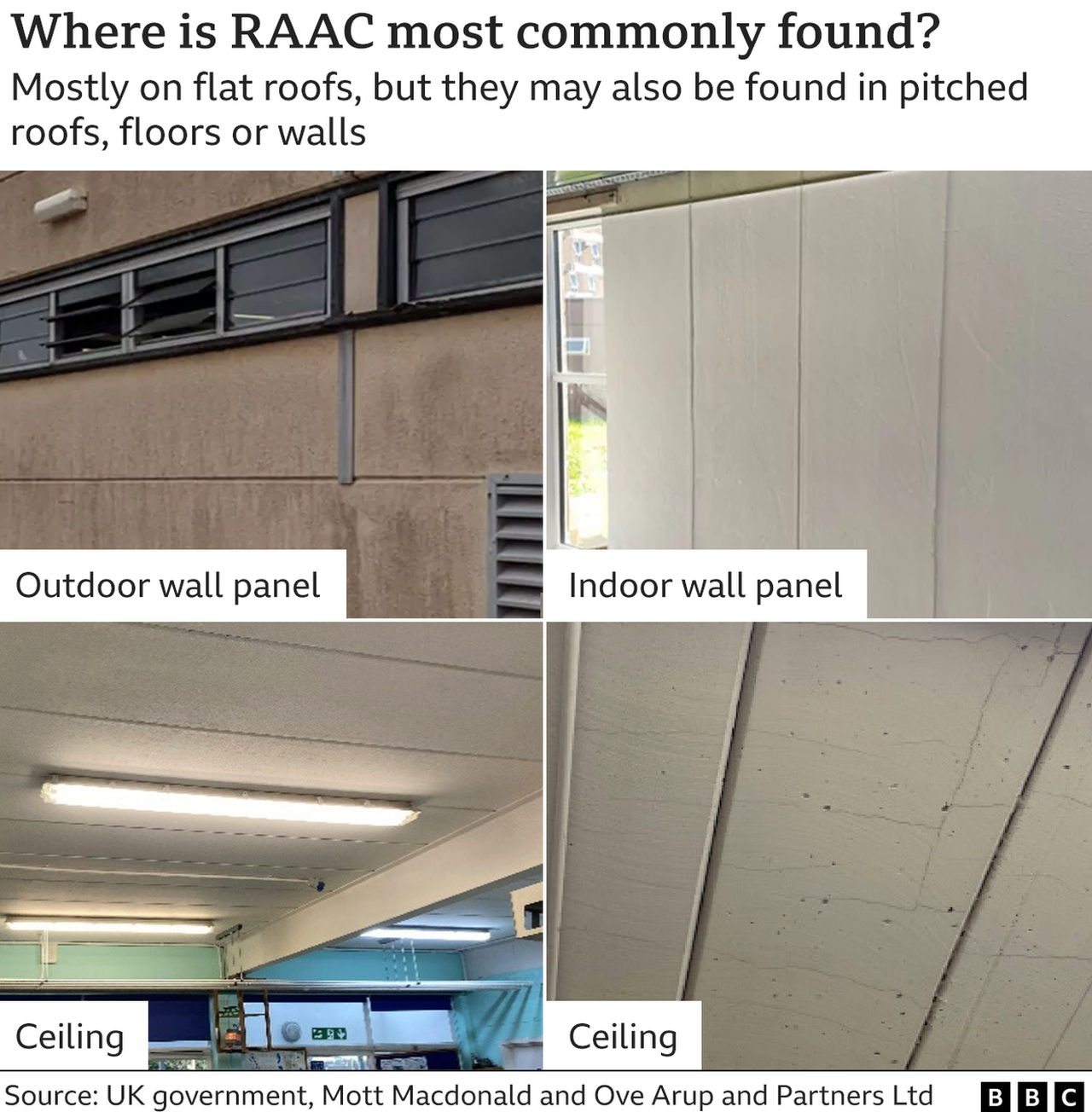
Between the 1950s and 1990s the material, known as Raac was used mostly in flat roofing, but also in floors and walls.
It offered a cheaper alternative to standard concrete.
But its short lifespan means its use in permanent buildings has caused problems.
Source: BBC

Follow East of England news on Facebook, external, Instagram, external and X, external. Got a story? Email eastofenglandnews@bbc.co.uk, external or WhatsApp us on 0800 169 1830
- Published6 September 2023

- Published6 September 2023

- Published6 September 2023
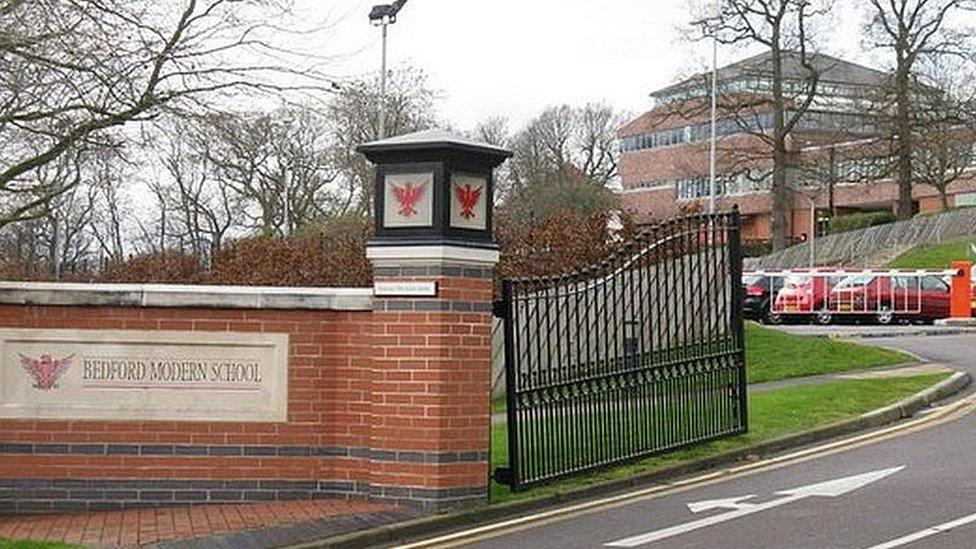
- Published6 September 2023
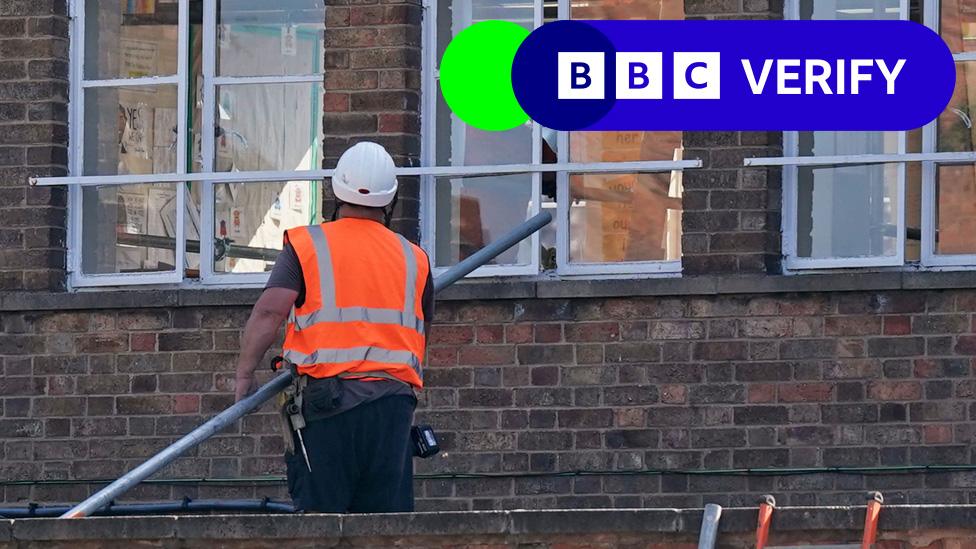
- Published5 September 2023
